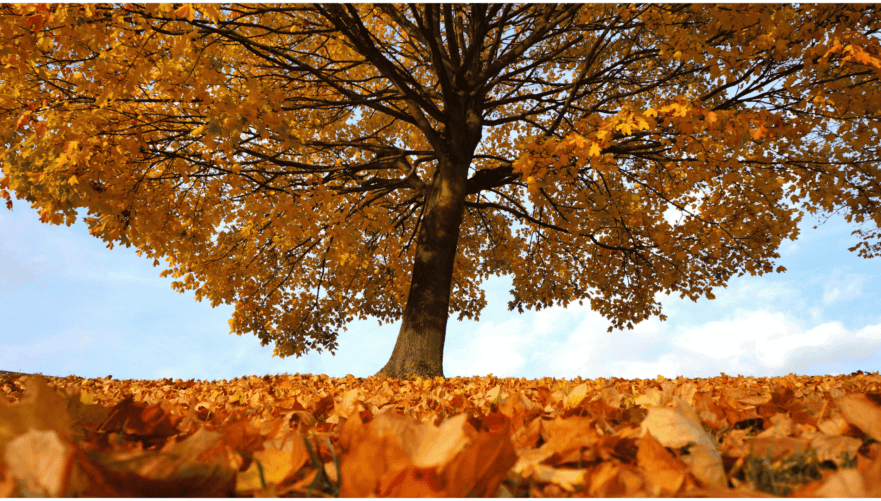- The Harm of Smoking to the Ears - April 9, 2025
- The Importance of Exercise for Hearing Health - March 11, 2025
- Movie Theaters and Hearing Aids - February 13, 2025
Tinnitus, known commonly as ringing in the ears, is a common condition in the US. As the seasons change, you may notice fluctuations in the intensity and frequency of your symptoms. Seasonal changes, like the arrival of cooler weather, or changes in atmospheric pressure can change your experience of tinnitus, and you may need to change your management techniques.
Here are some effective strategies for managing tinnitus during the fall season.
Understanding Tinnitus
Tinnitus is the perception of sound when there is no corresponding external noise present. It can sound like ringing, hissing, buzzing, whooshing, or even roaring sounds. It is not a disease itself but a symptom that can result from a range of underlying causes such as age-related hearing loss, exposure to loud noise, ear infections, or certain medications.
Seasonal Factors Affecting Tinnitus
The fall season brings its unique set of challenges that can exacerbate tinnitus:
- Colder Weather: As temperatures drop, blood flow can be restricted, affecting the ears and potentially worsening tinnitus.
- Atmospheric Pressure Changes: Sudden or significant changes in barometric pressure can impact the ear and aggravate tinnitus symptoms.
- Allergies: Pollen and mold counts can change in the fall, leading to allergic reactions that can cause inflammation and increase fluid in the ear, which can intensify tinnitus.
Tinnitus Management Strategies
Here are some strategies to better manage tinnitus during the fall:
1. Invest in Hearing Protection
Outdoor activities like fall festivals or sports events can expose you to loud noises. Carry earplugs or earmuffs to protect your hearing from the potentially harmful effects of loud noise, a common tinnitus trigger.
2. Manage Stress Levels
Stress can aggravate tinnitus. Engage in relaxation techniques such as deep breathing, progressive muscle relaxation, or meditation. Activities like yoga and regular exercise can also lower stress levels and reduce the severity of tinnitus symptoms.
3. Sound Therapy
Use sound therapy to mask the sounds of tinnitus. Soft music, white noise machines, or apps designed for tinnitus management can be especially useful during quiet autumn evenings.
4. Proper Ear Care
Sudden temperature drops can cause earwax build-up, potentially intensifying tinnitus. Maintain a proper ear care routine and consult a healthcare provider if you suspect wax accumulation.
5. Maintain a Healthy Lifestyle
A healthy diet and regular exercise can improve blood circulation, which can be particularly beneficial for managing tinnitus during the colder months.
6. Stay Hydrated
Dehydration can exacerbate tinnitus. Make sure you drink plenty of fluids, even though the temperatures are lower and you might not feel as thirsty.
7. Allergy Management
If you have fall allergies, be sure to manage them effectively. Use antihistamines if recommended by your doctor, and use a dehumidifier to control mold growth inside your home.
8. Use Weather Protection
Wearing hats, scarves, or hoods can help keep your ears warm and protected from the wind, which can sometimes trigger tinnitus flare-ups.
9. Control Blood Pressure
High blood pressure can affect tinnitus. With the comfort foods of fall, remember to watch your salt intake and maintain a diet low in saturated fats to help control your blood pressure.
10. Stay on Top of Medical Check-ups
Regular visits to your doctor or hearing health professional can help catch any issues before they exacerbate your tinnitus. Discuss any seasonal changes in your tinnitus with your healthcare provider.
When to Seek Professional Help
If your tinnitus worsens during the fall or if the management strategies you’ve been using don’t help alleviate the symptoms, it may be time to speak with a specialist. We can provide tailored solutions, including advanced therapies and technology for tinnitus management.
Contact Us For Tinnitus Management
Fall often brings a welcome change, with its crisp air and colorful landscapes, but for those with tinnitus, it can be a time of increased discomfort. By understanding how seasonal factors impact tinnitus, you can be prepared to manage any changes in tinnitus. Don’t let tinnitus take control of your life – instead, take proactive steps to manage your symptoms and enhance your quality of life.
Remember, tinnitus management is highly individual, so it may be beneficial to note down what seems to worsen or alleviate your symptoms. Then visit us for tinnitus management. We offer a range of solutions, including sound masking devices and hearing aids with built-in tinnitus management programs. Regain peace and quiet today!

